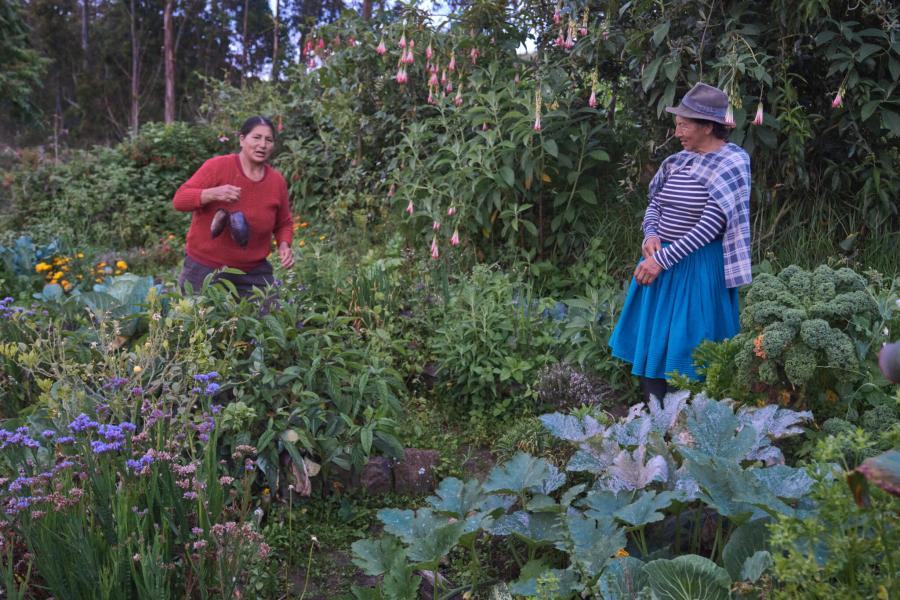Italy was outraged and the world was shocked over the Cermis cable car tragedy of February 1998, during which an American low- flying military plane sliced through the cables holding a car full of skiiers, plunging all 20 of them to their deaths. Prime Minister Prodi called it an act of tragic recklessness. Outrage was renewed a year later when the pilot was acquitted by a U.S. military court. Europe resounded with an outcry against low-level flying in general and the American handling of the Cermis situation in particular. As a result, Italy decided to suspend NATO low-level flying over its airspace. The same NATO countries, including Italy, express little concern regarding the consequences of their regularly scheduled low-flying maneuvers in Labrador.
The provision of air space in Labrador for low-level flying operations constitutes a large part of Canada's contribution to NATO. The Goose Bay Military Operations website details Canada's revenue from low-level flying: "[Military operations generate] nearly $100 million of annual expenditures on personnel salaries [and] operations and maintenance costs; the foreign military participants contribute the largest portion of these costs according to a `user pay' formula associated with their training."
In 1999, Italy (and four other NATO allies) initiated a 10 year long low-level flying operation in Labrador. In June 1999 the Innu Nation alerted the Italian government to ongoing land disputes in Labrador. The Italian government, along with all other NATO members, has chosen to ignore the issue; NATO's official position carefully minimizes the land disputes. The European Union's stance is that the dispute over Innu land is not within its jurisdiction. In an August 4 1996 question-and-answer session in the European Parliament, MP Magda Aelvoet commented, "[The low-level flying maneuvers] cause noise nuisance and air pollution [and are] a serious threat to the way of life [of] this [Innu] indigenous people. Has the Commission ever considered this matter, and have alternatives to the low-level flights over this area been sought?" Sir Leon Brittan, Vice President of the Commission replied: "The Commission has no jurisdiction to deal with this matter. It is solely [a question] for the national authorities concerned."
Only three years before, when the UN declared that the decade between 1993 and 2003 be "The Decade of the World's Indigenous Peoples," the European Parliament was an enthusiastic supporter. Hiltrud Breyer, member of the European Parliament, said in 1993, "The European Parliament has passed various resolutions…expressing its concern for the situation of indigenous peoples. I hope it will strengthen its efforts for the realization of their human rights." These encouraging words have not been backed by action. On the contrary, both NATO and Canada have sponsored studies to support the position that low-level flying has no negative impact on the environment. An article by Cliff Wells entitled "Low-level Flying Having No Evident Impact, Chair Says" was published in The Labradorian on February 28, 2000. Wells stated that the studies were still in progress, but "while the jury may still be out, there is no indication that low-level flying causes any environmental harm."
Evidence gathered in Labrador and elsewhere suggests, however, that the impact of low-level flying on the environment and on humans is severe.
Innu leader Elizabeth Penashue described during a peace assembly held at McGill University in 1994 the experience of overhead low-level flying. The violent, loud, unexpected noise -- coming from nowhere -- stops people in their tracks; it disorients them, terrorizing children and pregnant women. Elderly people fear that their hearts will stop. Mary Wadden describes a similar experience in her book, Nitassinan: "…I was hit by an abrupt, incredible blast of noise. The tent canvas shook. I fell back on the floor, my ears rang, and I felt my heart begin to pound painfully." This effect is acknowledged by European authorities as well. Roland Fournes, German Consul General in Toronto, admitted during a meeting with Innu representatives in 1992 that he had experienced the horrendous noise in Germany. "Your heart nearly stops!...But Canada is so much bigger than Germany." With this germane comment, low-flying operations continue.
The impact on wildlife is likewise severe. In his 1990 book Last Places, Lawrence Millman quoted Innu hunters' personal observations of low-flying's effects. The exhaust fumes from the jets cover the waters with a film that poisons the fish. The unbearable, relentless noise scatters geese and ducks, causing them to abandon their eggs. Foxes are so frightened that they eat their own young. These findings are corroborated by other sources. In an article published in The Ottawa Citizen in 1990, journalist Janis Hass claims that "the Department of National defense had to pay out $145,000 last year to compensate property owners for damages caused by military aircraft…. One $45,000 settlement was paid to the owner of a fox farm in Chatham, New Brunswick. According to the farmer's claim, the overflight of one CF5 jet aircraft on a training mission in March 1988 disturbed his foxes to such a degree that the females ate their newborn kits and pregnant foxes aborted their fetuses."
While Canada is willing to compensate farmers for damages caused by low-level flying, the country follows quite different standards when it comes to the rights of disenfranchised ethnic groups. Canada's position is carefully phrased: "There are no Aboriginal settlements within the training area, although groups and individuals may travel or camp in a number of locations during certain periods [italics added]."1 This is technically true, particularly given the government's policy of confining the Innu to permanent settlements. However, the term `settlement' should be extended to include the land that the Innu consider essential to their spiritual life -- the land where they have always hunted and gathered and conducted those ceremonies essential to their identity as Innu. Unfortunately, first peoples who maintain nomadic or semi- nomadic lifestyles tend to become invisible in the eyes of national governments, particularly when political and economic interests are at stake.
The Innu are a distinct people with a distinct language and have been considered Canadians since Canada unilaterally asserted control over their territory. Until 50 years ago, Labrador was considered part of British Newfoundland. The appropriation of Innu territories began when Newfoundland joined Canada in 1949. Canada treated the Innu like the U.S. had treated Native Americans a century before. Originally, the Innu traversed their lands following the caribou. In 1949, however, they were pressured to settle in a number of communities, deprived of their traditional lifestyle and subjected to degrading conditions in shacks lacking insulation and the most basic forms of sanitation. Their plight shocked the Canadian public when the scandal of Davis Inlet (one of the settlements) became known for the tragic death of a group of children who were trapped inside their burning house. The abject conditions suffered by the Innu were not unique to Davis Inlet. Children were forced into government-run schools where they were beaten for speaking their language. Many were sexually abused. Only non-Innu priests, teachers and nurses had housing with sewage disposal and running water.
Everywhere the results of forced sedentarization were catastrophic. The harsh discipline administered by teachers and priests, the disintegration of the traditional hunter economy and consequent dependence on Canadian welfare, and the imposition of a foreign authority and even a foreign god have contributed to alcoholism, domestic abuse and the highest incidence of suicide in the world. Still, assimilation into mainstream society (the Canadian government's desired result) has been unsuccessful. Throughout their ordeal, the Innu have nurtured a firm vision of who they are and this pride in their culture has been the most important instrument of their survival.
Most aspects of Western life are at odds with traditional Innu life. Even the land claim is inappropriately inverted, according to one Innu elder: "It should be Canada petitioning the Innu for land." In appropriating Innu land, Canada has taken ownership of Labrador and threatened the Innu's very identity. Confined for most of the year to permanent settlements, the Innu can get in touch with their identity only on their land, where they can practice their ancestral way of life. And now, even on their ancestral lands they are subject to intrusive, destructive maneuvers that have a severe impact on their lives.
Their efforts to defend their land and their culture have been remarkably peaceful and within the boundaries of the law. Their long legal battle has been based on the premise that Canada has no legal claim to Nitassinan (the Innu name for Labrador). Elizabeth Penashue describes her efforts to stop the flights: "When we go on the base, even when we are close to the jets, none of our children or elders go up to smash the jets. We never do that…. We tell the children, don't touch anything. Don't break anything. Don't be rude."2
The Canadian military police, in contrast, have been less than gentle in handling the protesters. When Elizabeth and her people pitched tents on the landing strips, the police dragged people out and cut down their tents regardless of what was inside. During a later raid on their camp, women were dragged off without being able to properly dress their children. Many were separated from their children and imprisoned.
Canada must be pressured to obey international laws on the protection of Indigenous Peoples. Even during negotiations over land rights, industrial development forges ahead because, according to Canadian authorities, a halt to development would "rob the Innu of significant revenue." The underlying attitude is that only settlement and industrialization (the options offered by the Canadian government) are viable choices. It is not coincidental that these options would most benefit Canada. Like the Davis Inlet horrors, the results after 50 years of this type of management are ignored. The disregard shown by the Canadian Prime Minister and the Premiers of Newfoundland and Québec for Innu rights confirms the attitude condemned in Survival International's Canada's Tibet. The thousands of letters generated by this report have gone unanswered. Canada continues to demand much from the Innu, but is willing to offer them little in return.
The Innu are ready to join negotiations as long as they can do so as a sovereign indigenous nation and not as second-class Canadians. According to recent conversations between Cultural Survival and Innu contacts, some Innu may be prepared to consider limited low-level flying over Labrador provided that extensive studies are conducted to determine environmental impact. The Innu seek official recognition of their right to speak out and be involved in issues concerning their land.
News of the Italian tragedy did reach the Innu. Elizabeth Penashue commented, "…there was low-level flying and the people did not want it. They only complained for two years and the government got rid of it. (They were white people). We've complained for about ten years but nothing has been done about it."
Twenty people died a tragic, needless death at Cermis and the world took notice. The Innu of Labrador suffer on, their livelihood and identity stolen with each jet that thunders overhead. When will the world have outrage enough for the Innu?
References & further reading
Brody, H. & Markham, N. (1991). Hunters and Bombers. (Video)
Wadden, M. (1991). Nitassinan: The Innu Struggle to Reclaim their Homeland. Vancouver/Toronto: Douglas & McIntyre.
www.nativenet.uthscsa.edu/archive/nl/9608/00 22.html
Innu Nation Website: www.innu.ca.org
Goose Bay Foreign Military Training Website: www.capitalnet.com/~pmogb/website/home_e.h tml
BBC press release on the Cermis tragedy: 1. thsl. bbc.co.uk/low/english/world/ne wsid_53000/53420.stm
Canada-sponsored studies on environmental impact of low-level flying: www.capitalnet.com/~pmogb/website/environm ent/institute/presentation96_emp_e.html
Official NATO Website: www.nato.int/
(1) Goose Bay Foreing Military Training Website.
(2) Elizabeth Penashue's talk at McGill.
Article copyright Cultural Survival, Inc.



